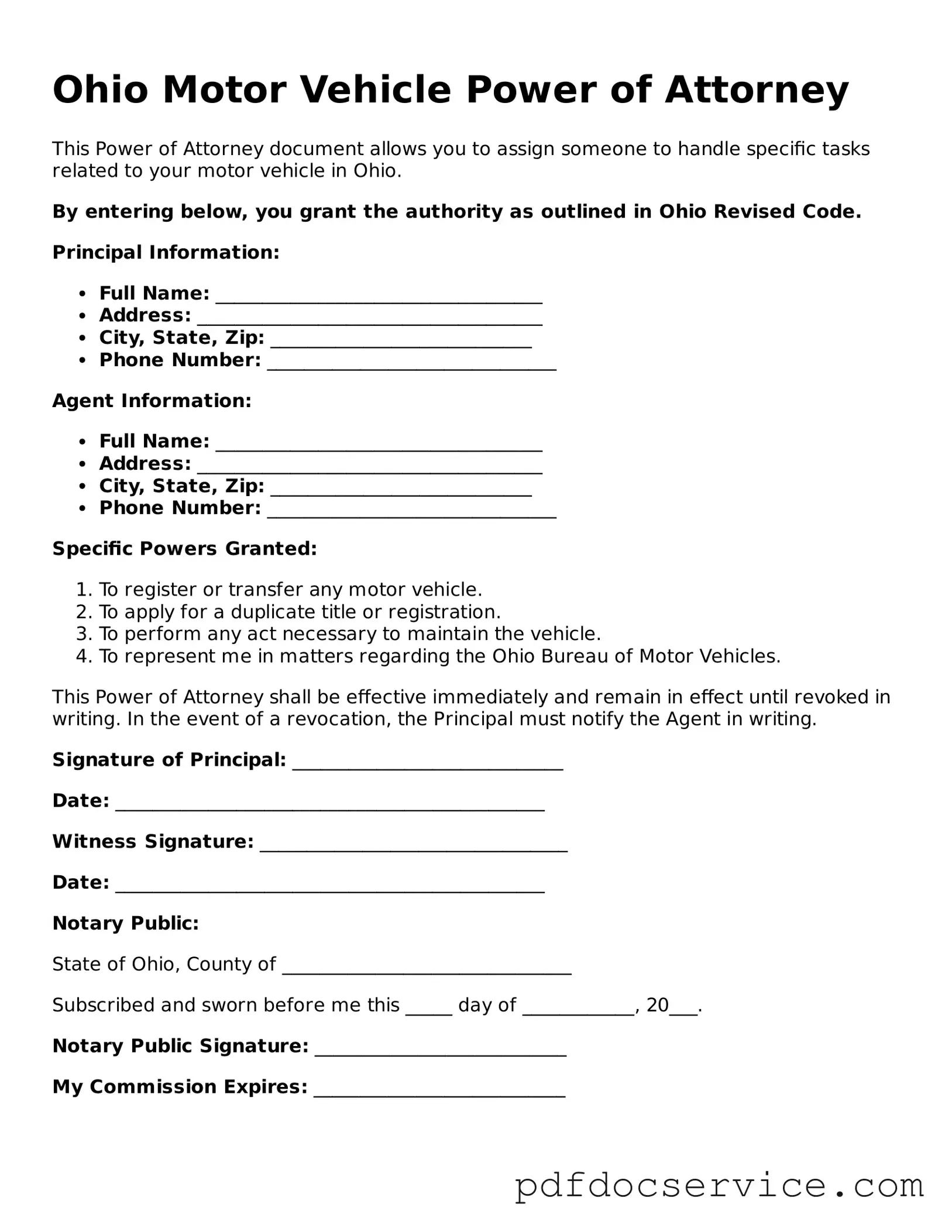What is a Motor Vehicle Power of Attorney in Ohio?
A Motor Vehicle Power of Attorney (POA) in Ohio allows one person to authorize another individual to act on their behalf regarding motor vehicle transactions. This can include buying, selling, or transferring a vehicle title, registering a vehicle, or handling other related matters.
Who can be designated as an agent?
Any adult can be designated as an agent in a Motor Vehicle Power of Attorney. This could be a family member, friend, or a trusted professional. It's important to choose someone responsible and reliable, as they will have the authority to make decisions regarding your vehicle.
The Motor Vehicle Power of Attorney can be used for various transactions, including:
-
Transferring ownership of a vehicle
-
Signing documents related to the sale or purchase of a vehicle
-
Registering a vehicle with the Ohio Bureau of Motor Vehicles (BMV)
-
Obtaining a duplicate title
-
Handling vehicle inspections and emissions tests
Yes, the Motor Vehicle Power of Attorney must be notarized to be valid in Ohio. This means that you and your agent will need to sign the document in the presence of a notary public, who will then affix their seal to the form.
How long is the Motor Vehicle Power of Attorney valid?
The validity of the Motor Vehicle Power of Attorney is typically indefinite unless specified otherwise in the document. However, it’s a good idea to review the form periodically and revoke it if it is no longer needed or if your circumstances change.
Can I revoke a Power of Attorney?
Yes, you can revoke a Motor Vehicle Power of Attorney at any time. To do this, you must create a written notice of revocation and provide it to your agent and any relevant parties, such as the Ohio BMV. Make sure to keep a copy for your records.
Ohio does not have a standardized form for the Motor Vehicle Power of Attorney, but it’s essential to use a form that includes all necessary elements, such as your name, your agent’s name, and the specific powers being granted. Many legal document services provide templates that meet Ohio's requirements.
What if my agent lives in a different state?
Your agent can reside in a different state and still act on your behalf with a Motor Vehicle Power of Attorney. However, they may need to be familiar with Ohio's laws and procedures for motor vehicle transactions to effectively handle the necessary tasks.
While there is no fee specifically for creating a Motor Vehicle Power of Attorney, you may incur costs for notarization and any transactions conducted through the Ohio BMV. It's advisable to check with the BMV for any applicable fees related to vehicle transactions.
How do I submit the Power of Attorney to the BMV?
To submit the Motor Vehicle Power of Attorney to the Ohio BMV, you typically need to present the notarized document along with any other required paperwork for the transaction you wish to complete. This can often be done in person at a local BMV office. Check the BMV's website or contact them directly for specific submission guidelines.

